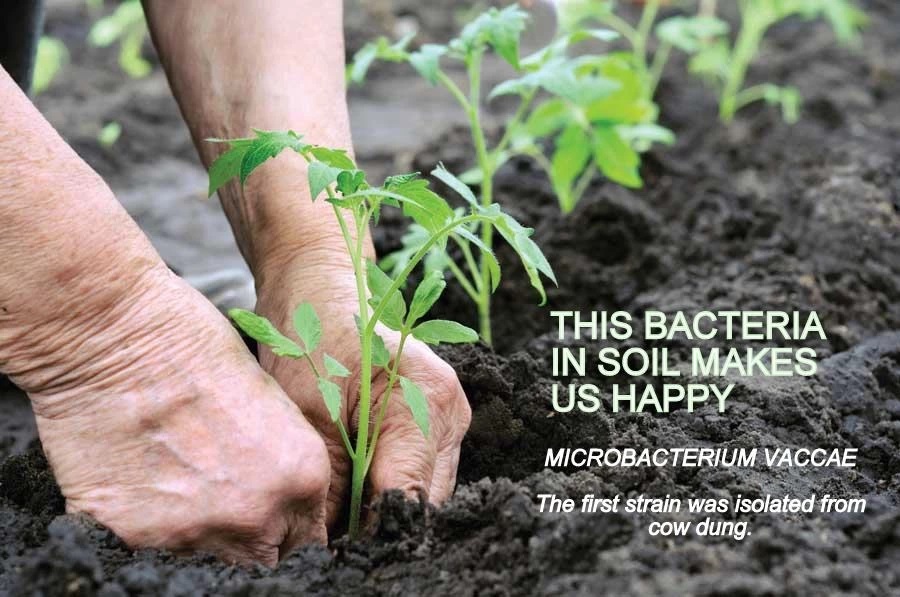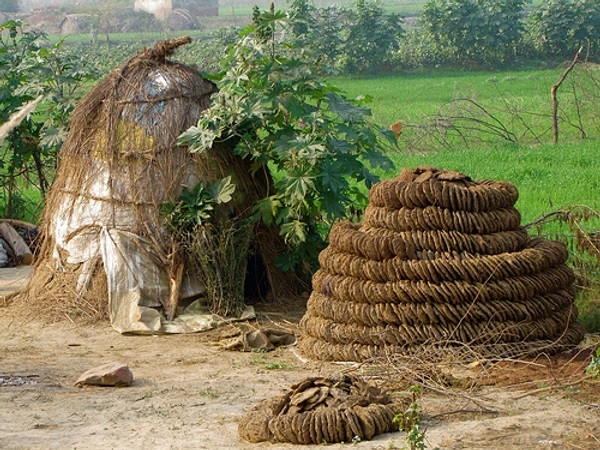Many people, including me, talk about the therapeutic benefits of gardening. And why is that? All sorts of reasons have been posited: It’s a meditative practice; it’s gentle exercise; it’s fun; it allows us to be nurturing and to connect with life on a fundamental level.

Its name originates from the Latin word, vacca (cow), since it was first cultured from cow dung in Austria. Exposure to Mycobacterium vaccae, by way of working with cow dung or soil has an antidepressant effect.

Seratonin is also thought to play a role in learning and hence exposing children to gardening or fields with grazing cattle is likely to make them sharper, happier. Lack of childhood exposure to harmless bugs is leading to improperly primed immune systems, which then go on to look for trouble where none exists.
Research areas are being pursued with regard to Mycobacterium vaccae vaccine include immunotherapy for allergic asthma, cancer, depression, leprosy, psoriasis, dermatitis, eczema and tuberculosis. This is very closely inter-related to Panchgavya!
Interesting Ayurveda and Panchgavya places vast importance on role of Gobar or cow dung for many diseases. Against wheezing and coughing gobar-ras from a weening calf is mixed with honey and this mixture, is administered orally and put on the chest. Gomaya tel, a classical ayurvedic preparation is very useful as nasal drops for people suffering from glaucoma. Use of Gobar in Panchgavya Ghrita is stated due to its mind-relaxing properties. We use cow dung extensively for kidney patients and those suffering from autism and psychosis.
For more information, write to me at gavyasiddha@gmail.com or call +91 7676 165165 for appointment.
